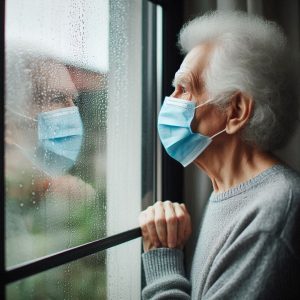The project at a glance
-
Start date:01 Jun 2020
-
Duration in months:7
-
Funding:FNR
-
Principal Investigator(s):Isabelle ALBERT
About
The goal of CRISIS was to find out how Covid-related safety measures and their communication to the public during the first months of the pandemic were experienced by older adults (60+) in Luxembourg. We assessed two time-points to explore processes and detect possible mid-/ long-term effects on different psychological and health-related outcomes. The quantitative survey (first wave in June/July; N = 611, second wave in September/October 2020; N = 523) with independently living older people was carried out by TNS-Ilres online and via telephone interviews. Interviews with N = 84 people living in retirement homes were carried out with a shortened and adapted questionnaire in cooperation with 3 selected CIPAs. Our results provided important insights into unintended side effects of the preventive measures and their communication for older adults’ views on ageing and subjective well-being. About a quarter of participants indicated that they felt at least sometimes discriminated against due to their age and results demonstrated how views on ageing were linked to subjective well-being of older people during the first months of COVID-19 crisis. Older people in Luxembourg were mostly satisfied with the countries’ initial response to the pandemic, although a part considered the measures to be excessive. Although life satisfaction was generally reported as high even during these first months of the pandemic, a reduction in life satisfaction and higher loneliness was noted in the oldest age groups and people in nursing homes, and overall a fifth of participants reported emotional difficulties to deal with the current crisis. We could also identify coping resources of older people living independently and in nursing homes. Social networks, intergenerational support, and earlier coping experiences helped them to deal with challenges, whereas experiences of age-based discrimination and feeling of disagreement with measures to combat the pandemic were linked with compromised satisfaction.
Organisation and Partners
- Department of Behavioural and Cognitive Sciences
- Faculty of Humanities, Education and Social Sciences (FHSE)
- GERO-Kompetenzzenter fir den Alter
Project team
-
Isabelle ALBERT
-
Anna KORNADT
-
Elke MURDOCK
-
Josepha Nell
-
Martine Hoffmann
GERO-Kompetenzzenter fir den Alter
Keywords
- Older People
- Views on ageing
- Resilience
- Loneliness
- Social isolation
- Risk
- Self views
- Self-efficacy
- Communication
